SULAIMANI, Kurdistan Region –Arsalan Bayiz, the speaker of Kurdish Parliament, announced last month that compulsory military service was being reviewed by MPs as part of a proposed bill.
Muhammad Sharazuri, the chairman of the Peshmerga committee in parliament and an MP for the Patriotic Union of Kurdistan (PUK), said it would be good to define a period for the youth to serve in the military, though it should not be for more than one year.
"This is one of the needs of the state,” he said. “The Ministry of Peshmerga should demand it and parliament should study it."
"This will refute the accusations that the Peshmerga forces are a partisan armed force when people from all groups and classes will participate," he added.
After the end of Baathist rule in Iraqi Kurdistan in 1991, the name of the military was changed to Peshmerga and service became voluntary.
Rawand Muhammad said he would never wish for a return to compulsory military service. "I would not do it even if it was for a single year,” he said, recalling bitter memories of his father’s compulsory service. “It will never work in Kurdistan."
According to Fazil Basharati, an MP from the Kurdistan Democratic Party (KDP) and member of the Peshmerga committee, the only way to create a national army and institutionalize the Peshmerga is by making military service compulsory.
"It is true that it might be difficult at the moment, but it must be implemented eventually," he said.
Nariman Abdullah, a Change Movement (Gorran) MP in the security and interior committee, believes that compulsory military service is the practice of totalitarian regimes.
The parliamentary bloc leader of the Kurdistan Islamic League (Komal), Aram Qadir, agrees, saying it would be impossible to implement compulsory service in Kurdistan while talking about freedom and democracy.
Omar Abdul-Aziz, bloc leader of the Kurdistan Islamic Union (KIU), said, "It can't be done at this stage because the Ministry of Peshmerga has not been united yet and the PUK and KDP have a complete monopoly over this ministry."
"No one responds to the calls of recruitment from Baghdad,” said General Qaraman Kamal, the military training directory for the Ministry of Peshmerga. “The Kurdish youth would not apply even if military academies were built right in front of their homes."
Kamal said that the ministry calls on graduates of high schools and vocational institutions every year to apply to the military academies in Baghdad because they can take part due to the 17 percent participation right of the Kurdistan Region.
Last year, there were only 20 applicants to the two military colleges, Zakho and Qala Cholan.
“The percentage of the Kurdish presence in the Iraqi Army is decreasing day after day. Our officers and senior military officials are leaving the Iraqi Army and returning to the Kurdistan Region," said Kamal.
Upon his return from Germany, Jalal Talabani, the president of Iraq and leader of the PUK, discussed the issue of the decreasing number of Kurds in the Iraqi Army and asked his party members to encourage Kurdish youth to sign up.
According to Arif Tayfur, the second deputy speaker of Iraqi Parliament, the problem lies with the youth and not Iraqi military officials. "We make all these calls and only 10 to 20 of them apply,” he said. “We cannot increase the number of Kurds in the Iraqi Army this way."
Officials in Kurdistan’s Ministry of Peshmerga have launched an awareness campaign to encourage youth to apply to air force colleges. However, logistics brigadier-general for the Iraqi air force, Azad Ibrahim Shali, said no youth have answered the call to join.
"We have 30 Kurdish helicopter pilots,” he said. “We also have one flight instructor. But this number is very small."
He added, "The military aviation college has been opened and will accept 50 airfare cadets -- 27 Shia Arabs, 15 Sunni Arabs, seven Kurds and one Turkmen. But I personally asked the Kurdish MPs to increase the allowed number of Kurdish cadets from seven to nine."
In 1927, a group of Iraqi students was sent to military aviation college in Britain. They returned to Iraq on April 22, 1931, which was proclaimed the day the Iraqi Air Force was founded.
Recruiting Kurdish pilots was banned from 1971 to 2003. In June 2004, the new Iraqi Air Force was formed, and Kurds started participating in training courses in 2007. Only eight Kurdish pilots graduated from the initial courses. In the latest course, 27 Kurdish cadets were enrolled.
Welcome To Roj Bash Kurdistan


Kurdish Parliament to Debate Bill On Compulsory Military Ser
17 posts
• Page 1 of 2 • 1, 2
Kurdish Parliament to Debate Bill On Compulsory Military Ser
Mêdî û Pahlî
-
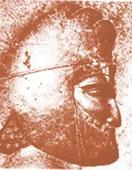
jjmuneer - Shaswar

- Posts: 3385
- Joined: Mon Aug 08, 2011 9:59 am
- Location: Rojhelat Kurdistan
- Highscores: 0
- Arcade winning challenges: 0
- Has thanked: 2572 times
- Been thanked: 1013 times
- Nationality: Kurd
Re: Kurdish Parliament to Debate Bill On Compulsory Military
What do you guys think of that? Should it be compulsory for atleast 1 year.
-
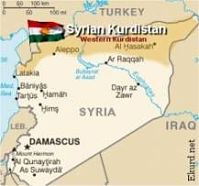
brendar - Shaswar

- Posts: 2073
- Joined: Sun Oct 30, 2011 8:28 pm
- Highscores: 0
- Arcade winning challenges: 0
- Has thanked: 948 times
- Been thanked: 1382 times
Re: Kurdish Parliament to Debate Bill On Compulsory Military
brendar wrote:What do you guys think of that? Should it be compulsory for atleast 1 year.
Yes, SK is small, only 5 million Kurdish inhabitants.
A lot of people need military experience in order to be able to defend our country.
Or they should have a professional, big, 200,000 men force.
-

crazyhorse - Ashna

- Posts: 439
- Joined: Mon Apr 16, 2012 8:05 pm
- Highscores: 0
- Arcade winning challenges: 0
- Has thanked: 107 times
- Been thanked: 203 times
Re: Kurdish Parliament to Debate Bill On Compulsory Military
It is more important to buy new heavy weapons.
But what makes me angry is that Gorran say that they are against compulsory military service because they think that it is dictatorial. They are openly against a strong Kurdish military.
But what makes me angry is that Gorran say that they are against compulsory military service because they think that it is dictatorial. They are openly against a strong Kurdish military.
Last edited by Cewlik on Sat Dec 15, 2012 2:09 pm, edited 3 times in total.
-
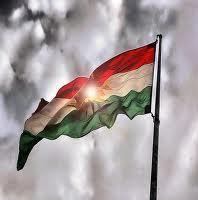
Cewlik - Tuti

- Donator

- Posts: 1086
- Images: 96
- Joined: Mon Apr 30, 2012 12:46 pm
- Highscores: 0
- Arcade winning challenges: 0
- Has thanked: 470 times
- Been thanked: 573 times
- Nationality: Kurd
Re: Kurdish Parliament to Debate Bill On Compulsory Military
The day i move back to Kurdistan, i would'nt mind doing Peshmerga service for a couple of years.
Kurdistan, the great land of the Medes.
-
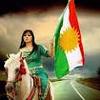
RawandKurdistani - Ashna

- Posts: 965
- Joined: Wed Sep 12, 2012 1:15 pm
- Location: Kurdistan
- Highscores: 1
- Arcade winning challenges: 0
- Has thanked: 240 times
- Been thanked: 217 times
- Nationality: Kurd
Re: Kurdish Parliament to Debate Bill On Compulsory Military
Cewlik wrote:It is more important to buy new heavy weapons.
But what makes me angry is that Gorran say that they are against compulsory military service because they think that it is dictatorial. They are openly against a strong Kurdish military. And this party get 25% of the votes in Kurdistan, because many Kurds are still ignorant. Every nation have such jashs, but they dont get so many votes like Gorran get in Kurdistan.
If that's dictatorial, then the entire western world is nothing but a bunch of dictators
Kurdistan, the great land of the Medes.
-

RawandKurdistani - Ashna

- Posts: 965
- Joined: Wed Sep 12, 2012 1:15 pm
- Location: Kurdistan
- Highscores: 1
- Arcade winning challenges: 0
- Has thanked: 240 times
- Been thanked: 217 times
- Nationality: Kurd
Re: Kurdish Parliament to Debate Bill On Compulsory Military
even norway (considered the worlds MOST democratic country) have it. 
When injustice becomes law, rebellion becomes duty.
-

Rando - Ashna

- Posts: 929
- Images: 29
- Joined: Sat Jul 09, 2011 4:27 pm
- Location: kurdistan
- Highscores: 0
- Arcade winning challenges: 0
- Has thanked: 1246 times
- Been thanked: 671 times
- Nationality: Kurd
Re: Kurdish Parliament to Debate Bill On Compulsory Military
Cewlik wrote:It is more important to buy new heavy weapons.
But what makes me angry is that Gorran say that they are against compulsory military service because they think that it is dictatorial. They are openly against a strong Kurdish military. And this party get 25% of the votes in Kurdistan, because many Kurds are still ignorant. Every nation have such jashs, but they dont get so many votes like Gorran get in Kurdistan.
I thought you stated you didn't support dictatorships. Now seemingly you wish to defend them. J/K but on a serious note there is nothing wrong with having military compulsory service for a year, and they should only fight if there is a war of survival, which will happen with the Turks. Anyways what we need first is a self-sufficient industry as I have stated contiously to support a large military for SK. However peopel are too bothered with Barzani being insulted or Gorran critisizing government policy, which the is job of the opposition. So Kurds say oh we hate dictatorships, but any critism, and it must mean they are a jash. See the industry of oil, should be some form of developing and creating the dyanmic efficieny into a new industry solely for defence purposes, that way we need not to rely on anyone else in a time of war.
Mêdî û Pahlî
-

jjmuneer - Shaswar

- Posts: 3385
- Joined: Mon Aug 08, 2011 9:59 am
- Location: Rojhelat Kurdistan
- Highscores: 0
- Arcade winning challenges: 0
- Has thanked: 2572 times
- Been thanked: 1013 times
- Nationality: Kurd
Re: Kurdish Parliament to Debate Bill On Compulsory Military
brendar wrote:What do you guys think of that? Should it be compulsory for atleast 1 year.
Atleast one year? I say atleast 5 years, but the last 2 years is just secondary typed home defence service, more casual typed. We need Kurds who are willing to die for Kurdistan, not some pussy Generals who have read a war book and decided to take command.
Mêdî û Pahlî
-

jjmuneer - Shaswar

- Posts: 3385
- Joined: Mon Aug 08, 2011 9:59 am
- Location: Rojhelat Kurdistan
- Highscores: 0
- Arcade winning challenges: 0
- Has thanked: 2572 times
- Been thanked: 1013 times
- Nationality: Kurd
Re: Kurdish Parliament to Debate Bill On Compulsory Military
jjmuneer wrote:brendar wrote:What do you guys think of that? Should it be compulsory for atleast 1 year.
Atleast one year? I say atleast 5 years, but the last 2 years is just secondary typed home defence service, more casual typed. We need Kurds who are willing to die for Kurdistan, not some pussy Generals who have read a war book and decided to take command.
No that is too extreme and unrealistic and it is not increasing the moral, it will decrease it and not many young people are prepared to throw away 5 years of their life. That has nothing to do with loving or hating your country, just common sense. 5 years is crazy. A study takes less time than that and then you've actually achieved something. 5 years sitting in a military camp and not contributing to society is bad. Young people could do a lot in 5 years.
Think about what you say. If the age of military service is 18, than all men would be in military service from 18 to 23. That is a really bad choice; you're stopping young men from studying and doing something more important than carrying a gun and running around on a field.
-

crazyhorse - Ashna

- Posts: 439
- Joined: Mon Apr 16, 2012 8:05 pm
- Highscores: 0
- Arcade winning challenges: 0
- Has thanked: 107 times
- Been thanked: 203 times
Re: Kurdish Parliament to Debate Bill On Compulsory Military
crazyhorse wrote:jjmuneer wrote:brendar wrote:What do you guys think of that? Should it be compulsory for atleast 1 year.
Atleast one year? I say atleast 5 years, but the last 2 years is just secondary typed home defence service, more casual typed. We need Kurds who are willing to die for Kurdistan, not some pussy Generals who have read a war book and decided to take command.
No that is too extreme and unrealistic and it is not increasing the moral, it will decrease it and not many young people are prepared to throw away 5 years of their life. That has nothing to do with loving or hating your country, just common sense. 5 years is crazy. A study takes less time than that and then you've actually achieved something. 5 years sitting in a military camp and not contributing to society is bad. Young people could do a lot in 5 years.
Think about what you say. If the age of military service is 18, than all men would be in military service from 18 to 23. That is a really bad choice; you're stopping young men from studying and doing something more important than carrying a gun and running around on a field.
They can conbuted to society through government work programmes and constant training. Thus our army will be much better trained than any others in the MENA.
Mêdî û Pahlî
-

jjmuneer - Shaswar

- Posts: 3385
- Joined: Mon Aug 08, 2011 9:59 am
- Location: Rojhelat Kurdistan
- Highscores: 0
- Arcade winning challenges: 0
- Has thanked: 2572 times
- Been thanked: 1013 times
- Nationality: Kurd
Re: Kurdish Parliament to Debate Bill On Compulsory Military
jjmuneer wrote:I say atleast 5 years
Why not 20 years, and you start with it.
jjmuneer wrote:I thought you stated you didn't support dictatorships. Now seemingly you wish to defend them.
Compulsory military service have nothink to do with dictatorship. But Gorran say that, because they dont want a strong Kurdish military.
Last edited by Cewlik on Sat Dec 15, 2012 2:08 pm, edited 1 time in total.
-

Cewlik - Tuti

- Donator

- Posts: 1086
- Images: 96
- Joined: Mon Apr 30, 2012 12:46 pm
- Highscores: 0
- Arcade winning challenges: 0
- Has thanked: 470 times
- Been thanked: 573 times
- Nationality: Kurd
Re: Kurdish Parliament to Debate Bill On Compulsory Military
No sane kurd wants to join the arab army and i dont know whats going on with mam Jalal and his weird wish. History has shown unlimited arab hatred towards kurds and its only a matter of time before Tikriti army invades kurdistan, chemical bomb us and rape our women. Every arab have this wish deep down their hearts but are to coward to admit it and try to hide it. Even the educated arab wish for this. Now they are preparing by buying 17 billion dollars worth of weapons and kicking out the remaining kurds in army, at the same time inviting baathi officers with child-blood on their hands.
regarding the compulsory military service im against since we already have enough volunters. We also need the most patriotic and no kids to serve. If Tikriti make more treaths and doesnt wanna share weapons with peshmerga then im for it + buying weapons from the americans since tikriti is starting messing with them and licking russian balls.
regarding the compulsory military service im against since we already have enough volunters. We also need the most patriotic and no kids to serve. If Tikriti make more treaths and doesnt wanna share weapons with peshmerga then im for it + buying weapons from the americans since tikriti is starting messing with them and licking russian balls.
-
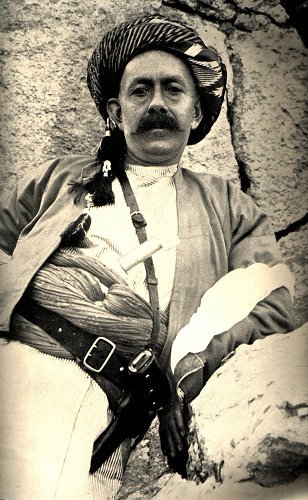
burnsss - Ashna

- Donator

- Posts: 805
- Joined: Tue Apr 17, 2012 12:09 pm
- Highscores: 0
- Arcade winning challenges: 0
- Has thanked: 233 times
- Been thanked: 497 times
Re: Kurdish Parliament to Debate Bill On Compulsory Military
burnsss wrote:No sane kurd wants to join the arab army and i dont know whats going on with mam Jalal and his weird wish. History has shown unlimited arab hatred towards kurds and its only a matter of time before Tikriti army invades kurdistan, chemical bomb us and rape our women. Every arab have this wish deep down their hearts but are to coward to admit it and try to hide it. Even the educated arab wish for this. Now they are preparing by buying 17 billion dollars worth of weapons and kicking out the remaining kurds in army, at the same time inviting baathi officers with child-blood on their hands.
regarding the compulsory military service im against since we already have enough volunters. We also need the most patriotic and no kids to serve. If Tikriti make more treaths and doesnt wanna share weapons with peshmerga then im for it + buying weapons from the americans since tikriti is starting messing with them and licking russian balls.
Don't worry, we are buying just as many weapons, but the most of them are kept secret.
Kurdistan, the great land of the Medes.
-

RawandKurdistani - Ashna

- Posts: 965
- Joined: Wed Sep 12, 2012 1:15 pm
- Location: Kurdistan
- Highscores: 1
- Arcade winning challenges: 0
- Has thanked: 240 times
- Been thanked: 217 times
- Nationality: Kurd
Re: Kurdish Parliament to Debate Bill On Compulsory Military
Peshmerga is buying light weapons and using them here in kurdistan (like galil rifles,zastava M92,FGM-148 and M4A1)
Peshmerga may have bought heavy weapons too,but these are certainly not in kurdistan. Iraq have KA-350I ISR and can detect any heavy weapons/Armour in kurdistan....
However,this does not mean we haven't bought any heavy weapons. We may have bought some heavy weapons that is not stationed in kurdistan. These heavy weapons may be stationed in a close country like israel (?) or a sunni country who have had pretty bad relations with iraq in recent times( ),and can be called in in case of an emergency.
),and can be called in in case of an emergency.
This will of course cost huge amounts of money.
Peshmerga may have bought heavy weapons too,but these are certainly not in kurdistan. Iraq have KA-350I ISR and can detect any heavy weapons/Armour in kurdistan....
However,this does not mean we haven't bought any heavy weapons. We may have bought some heavy weapons that is not stationed in kurdistan. These heavy weapons may be stationed in a close country like israel (?) or a sunni country who have had pretty bad relations with iraq in recent times(
 ),and can be called in in case of an emergency.
),and can be called in in case of an emergency. This will of course cost huge amounts of money.
When injustice becomes law, rebellion becomes duty.
-

Rando - Ashna

- Posts: 929
- Images: 29
- Joined: Sat Jul 09, 2011 4:27 pm
- Location: kurdistan
- Highscores: 0
- Arcade winning challenges: 0
- Has thanked: 1246 times
- Been thanked: 671 times
- Nationality: Kurd
17 posts
• Page 1 of 2 • 1, 2
Return to Kurdistan Today News (Only News)
Who is online
Registered users: Bing [Bot], Google [Bot]
















